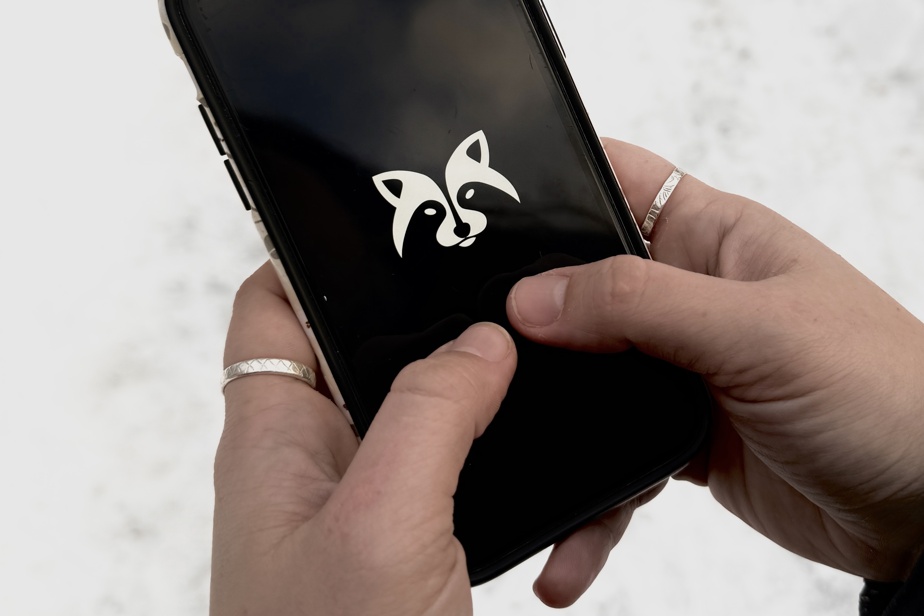Coming from Quebec technology, tested by police officers, transforming their phone into a body camera, the Robine application is now available to ordinary civilians.
For $42 or $72 per month, for people considered “at high risk of violence,” this mobile app first sends video recordings to a cloud vault. A surveillance center also records the geolocation, authenticates the videos and can transmit everything to the police forces. All data is authenticated and can be used in court.
Developed for five years, Robine is currently used by 31 women and 2 men who have “urgent needs for personal protection”, specifies the co-creator of the application, Gino Désautels. The service is aimed, for example, at women victims of domestic violence, young people who are being bullied or public figures who need increased security.
“A few years ago, we developed solutions for police officers, for mobile applications that transform phones into bodycams,” explains Mr. Désautels. We decided to take this technology and make it available to people at high risk of violence. »
Robine is a response to the call from Prime Minister François Legault who, in 2021, called on Quebecers to mobilize after a wave of feminicides, explains Mr. Désautels.
Robine does not replace emergency services, he specifies, but “can promote a return to normal life”. He gives the example of a divorced woman who fears meeting her violent ex-partner, with whom she must leave the children for her custody period. The entire scene can be filmed by the Robine application, transmitted live to the monitoring center and therefore preserved even if the phone is snatched.
From the outset, filming the scene and warning the potential attacker that a surveillance center is listening has an obvious deterrent effect, notes the co-creator.
“The police can’t be next to you all the time, every day, but the rest of us can […]. We supervise this type of risky event. We are notified and, if the situation escalates and the client is not able to call 911, we do it for her and transmit the images to the nearest patrol car. »
Robine has been tested “extensively,” he says, with experiences in shelters, in 911 emergency call centers, on patrols with police officers.
“Today we are ready and we have absolutely fantastic feedback. We change people’s lives. It’s very gratifying to hear the comments of those who tell us: “I didn’t want to leave my house anymore, I didn’t want to work anymore because I was at risk every time I moved.” This allows these people to return to normal life. »
The high cost of this protection, $42 or $72 per month, he sees as an “investment”, for the victim as well as for society. “A person who does not work does not pay taxes, and that costs society dearly. » This subscription is technically eligible for reimbursement, as Robine’s owner, EyeNation, is an authorized provider of the Victims of Crime Compensation (IVAC) and the Standards, Equity, Health and Safety Commission of work safety (CNESST). The Robine website also offers a section to check if a person is eligible for reimbursement of an advanced protection package.
